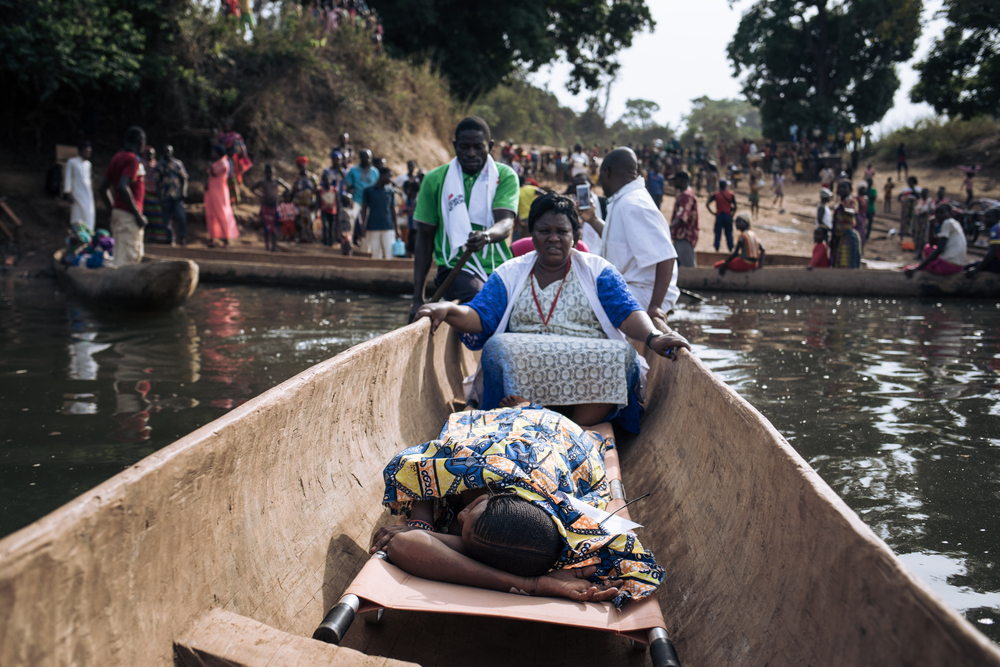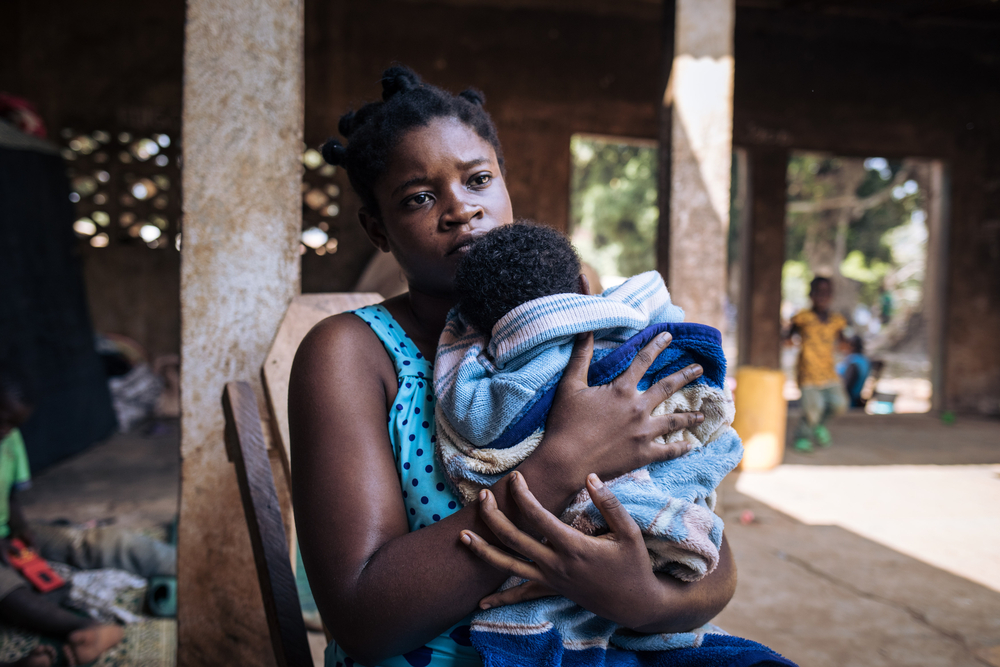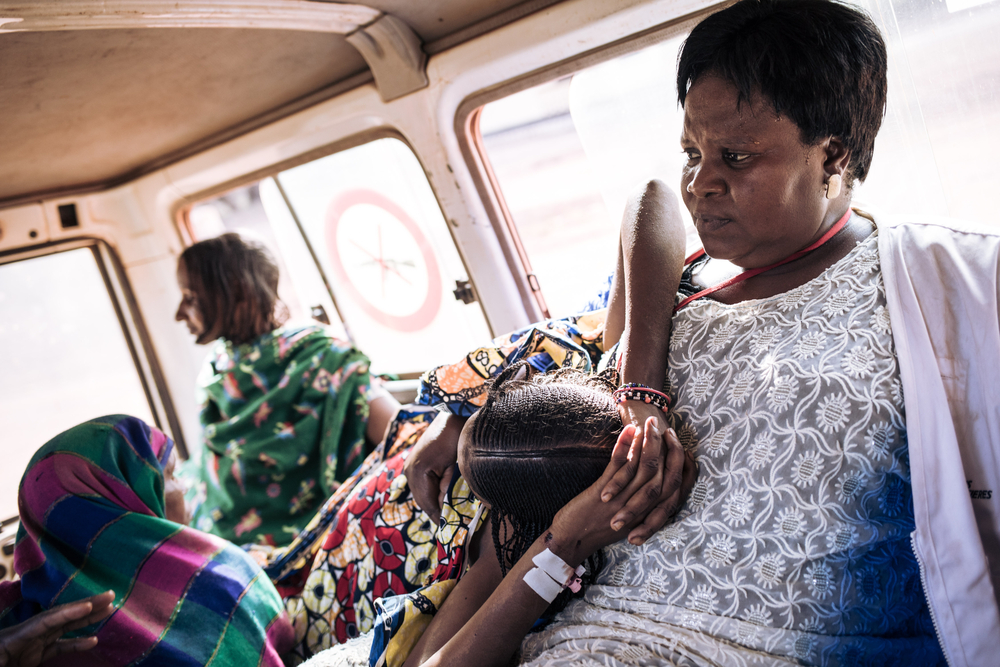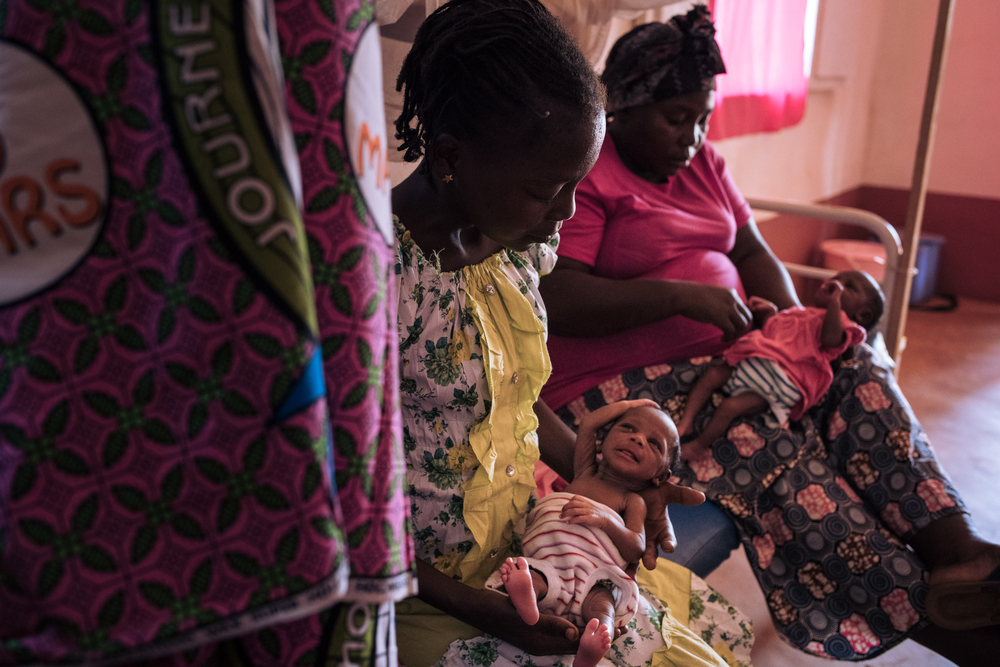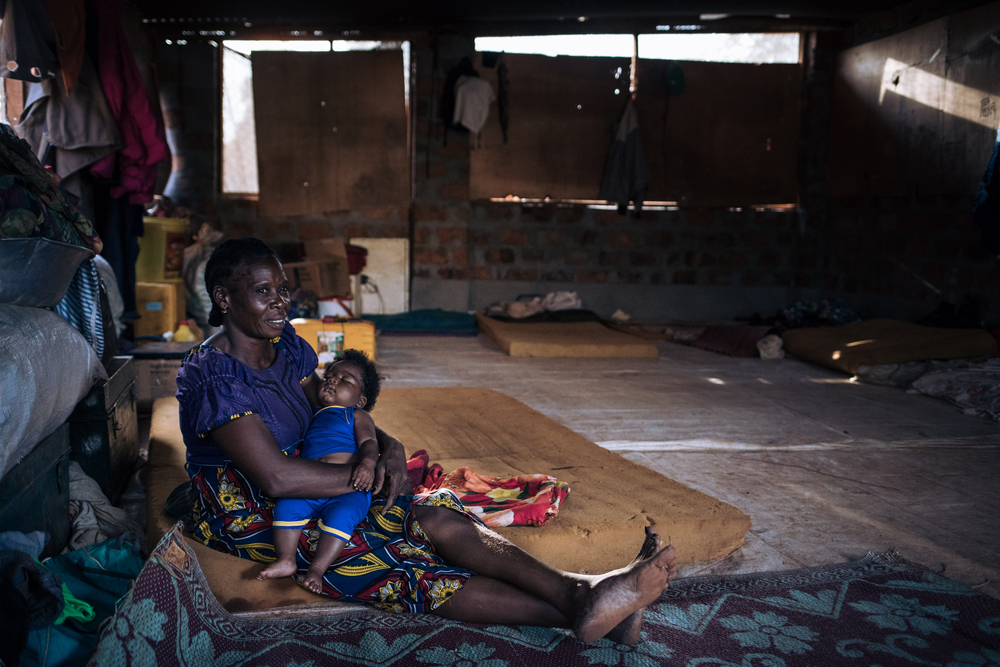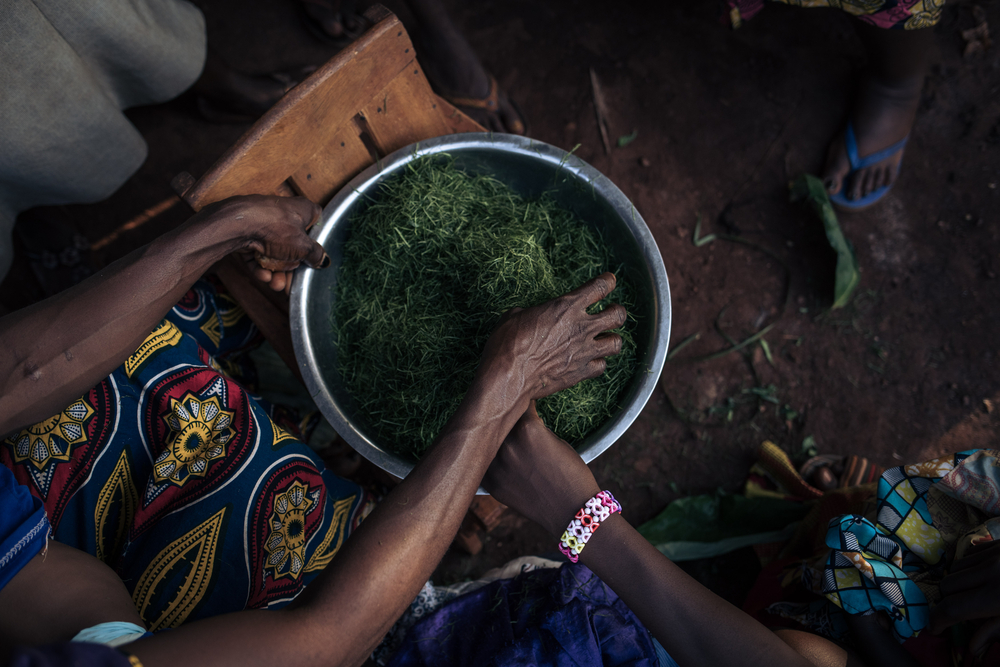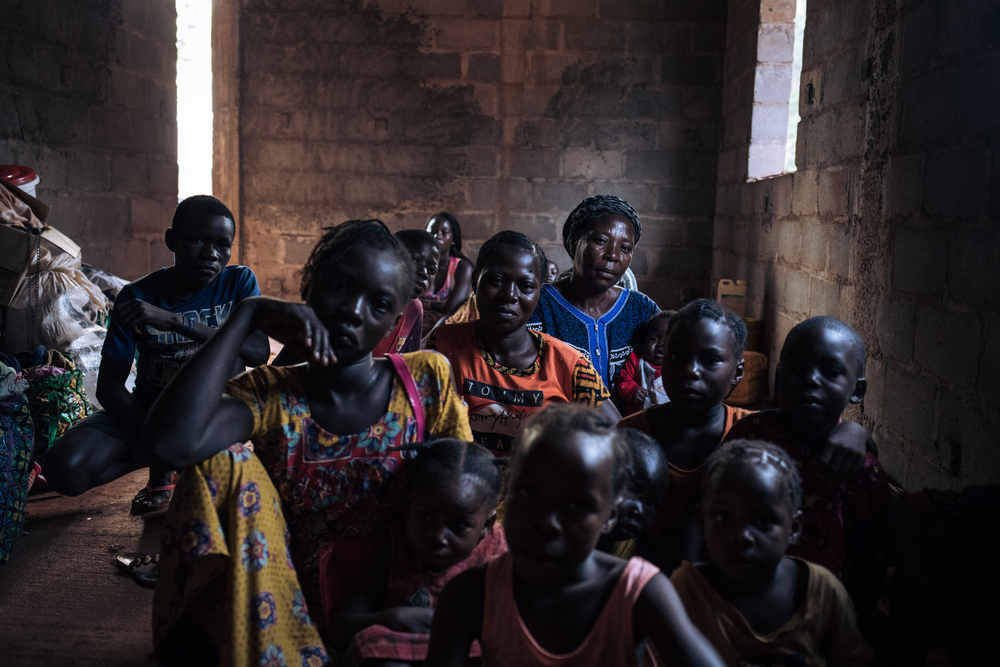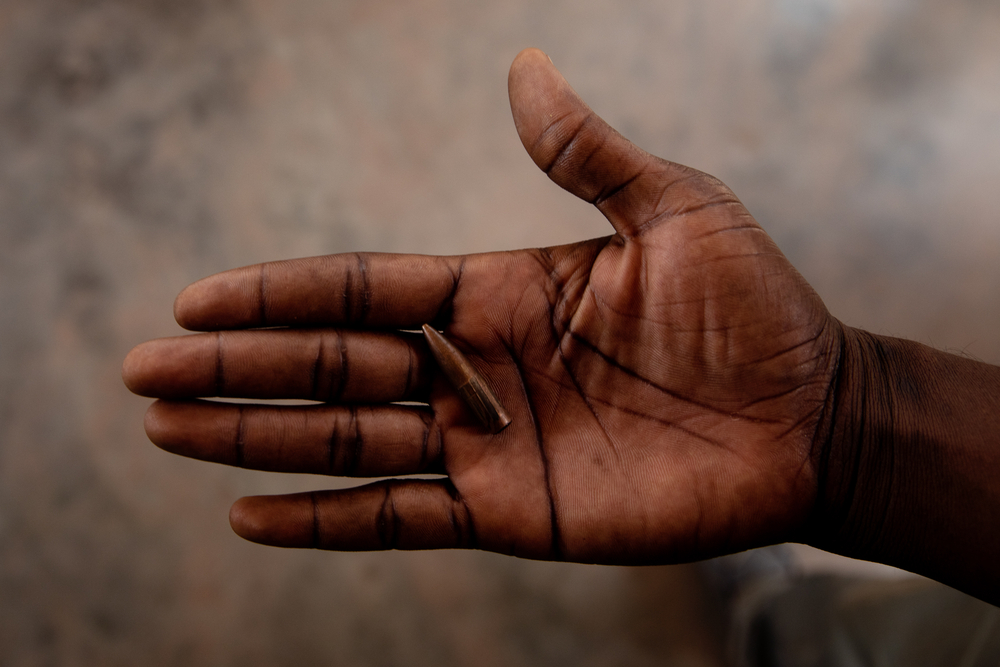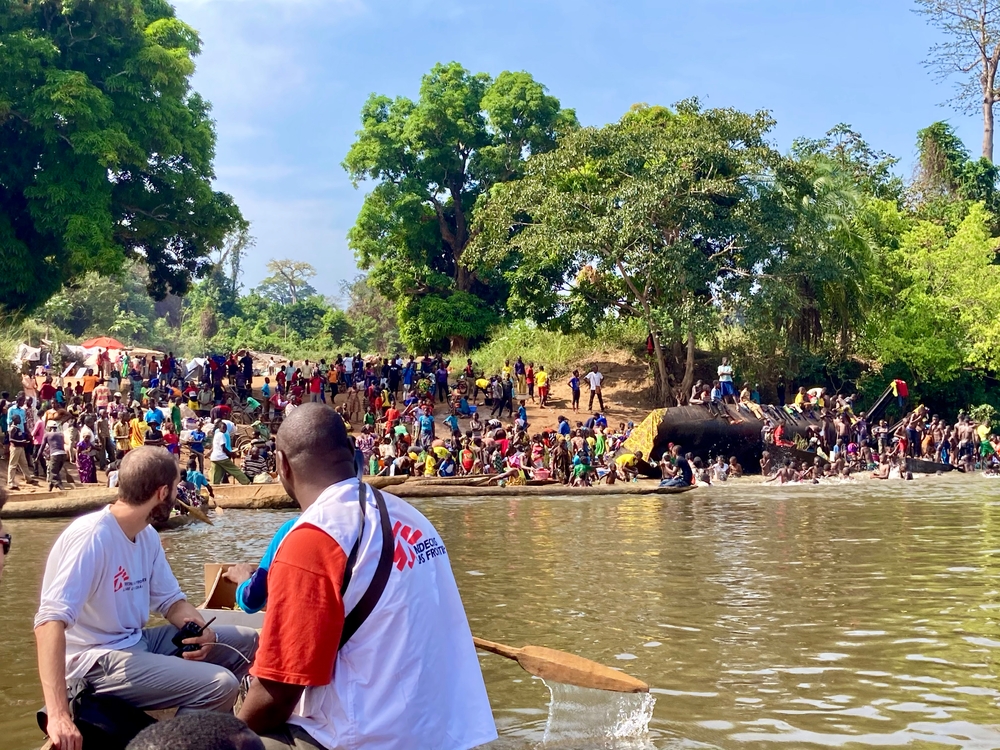But as armed clashes between the coalition of non-state armed groups and government forces backed by foreign troops erupted in many parts of the country, the fighting severely disrupted the work of humanitarian organizations and CAR’s already strained health system. Movements of patients and medical staff have been reduced, supplies of essential medicines are limited, and a spike in food prices makes it more difficult for families to afford health care. (Paying for health care is already an enormous obstacle to accessing health care, as 71 percent of the population lives below the poverty line.)
The worsening health crisis disproportionately affects displaced people and refugees. Currently, 1.3 million people—more than one in three—are internally displaced within CAR or have fled to other countries to seek safety. The situation is now comparable to the displacement seen during CAR’s 2013 civil war.
Women’s access to health care is even more precarious. Even outside the periods of acute violence, their socioeconomic status, the risk of exposure to violence at home and elsewhere, and the very limited access to family planning makes women particularly vulnerable. CAR has one of the highest maternal mortality rates in the world.
In Bangassou, in southeastern CAR, and Ndu, in northern Democratic Republic of Congo when many Central African refugees live, MSF provides free health care to local communities and displaced people, including sexual and reproductive health care. Every day, our teams provide pre- and postnatal support for women, ensure sanitary conditions for births, manage obstetric complications, provide access to contraception, and treat victims of sexual violence.
Here, women who fled the violence in CAR share their stories.

